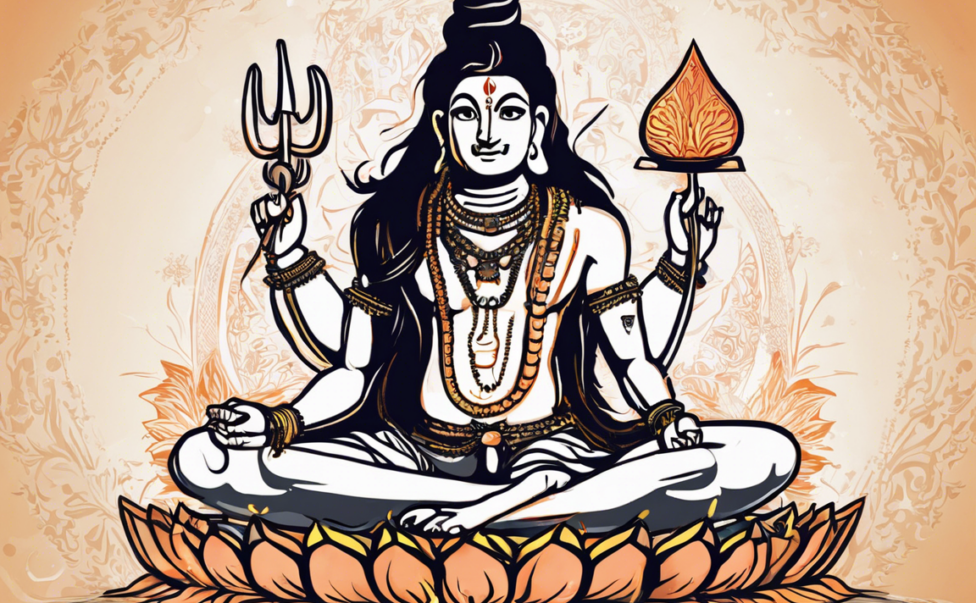Shivratri 2023: Significance and Celebration in Sawan
Introduction:
Shivratri, also known as Maha Shivratri, is a significant Hindu festival celebrated in honor of Lord Shiva. It holds immense spiritual significance and is observed with great devotion by millions of devotees across the globe. In the Hindu calendar, there are two main Shivratri festivals celebrated every year. One is Maha Shivratri, which falls in the month of Phalgun, usually in February or March, and the other is Shravan Shivratri, celebrated in the month of Shravan (Sawan), generally in July or August.
Shravan Shivratri:
Sawan, the fifth month of the Hindu calendar, is considered highly auspicious for worshipping Lord Shiva. Devotees observe Shravan Shivratri with great enthusiasm and devotion. This day holds immense significance as it is believed to be the day when Lord Shiva performed his cosmic Tandava dance. The celebrations of Shravan Shivratri are filled with various rituals, prayers, and offerings to seek Lord Shiva’s blessings and express reverence towards him.
Significance of Shravan Shivratri:
1. Favorable cosmic alignment: According to Hindu mythology, the month of Shravan is considered highly auspicious as it is believed that during this period, the planetary positions are aligned in a way that pleases Lord Shiva.
2. Spiritual significance: Shravan Shivratri is an ideal time for spiritual seekers and devotees to intensify their spiritual practices, such as meditation, fasting, chanting of mantras, and performing puja rituals.
3. Blessings of Lord Shiva: Worshipping Lord Shiva on Shravan Shivratri is believed to bestow devotees with protection, prosperity, peace, and liberation from negative influences.
4. Purification and renewal: Devotees observe fasts and engage in spiritual activities to purify their mind, body, and soul during Shravan Shivratri, seeking renewal and rejuvenation.
5. Community bonding: Shravan Shivratri brings communities together as devotees gather in temples to offer prayers, perform rituals, and participate in cultural programs to celebrate the auspicious occasion.
Celebration of Shravan Shivratri:
1. Fasting: Devotees observe a fast on Shravan Shivratri as a mark of devotion and penance. Some people opt for a complete fast without consuming water, while others consume milk, fruits, and light meals.
2. Abhishek and Puja: Special rituals are performed on Shravan Shivratri, including the ceremonial bath of the Shiva Lingam with milk, water, honey, ghee, and other auspicious substances. Devotees offer prayers, flowers, bael leaves, and incense to Lord Shiva.
3. Night-long vigil: Many devotees observe a night-long vigil on Shravan Shivratri, engaging in bhajans, kirtans, chanting of mantras like Om Namah Shivaya, and reading scriptures related to Lord Shiva.
4. Visiting temples: Devotees visit Shiva temples to offer their prayers and seek the blessings of Lord Shiva. Temples are beautifully decorated, and special bhajan and kirtan sessions are organized to mark the occasion.
5. Charity and Seva: Giving alms to the poor, feeding the needy, and offering assistance to the underprivileged are considered auspicious deeds during Shravan Shivratri. Devotees engage in acts of charity and selfless service to honor Lord Shiva.
FAQs (Frequently Asked Questions):
-
Q: What is the significance of fasting on Shravan Shivratri?
A: Fasting on Shravan Shivratri is believed to purify the mind and body, strengthen one’s devotion to Lord Shiva, and seek his blessings for protection and prosperity. -
Q: How is the ceremonial bath of the Shiva Lingam (Abhishek) performed on Shravan Shivratri?
A: The Shiva Lingam is bathed with water, milk, honey, ghee, curd, and other sacred substances while chanting prayers and mantras to invoke Lord Shiva’s blessings. -
Q: Can non-Hindus participate in the celebration of Shravan Shivratri?
A: Yes, Shravan Shivratri is a festival that welcomes people of all faiths to participate in prayers, rituals, and cultural events to experience the spiritual significance of the occasion. -
Q: What are some traditional dishes prepared during Shravan Shivratri?
A: Fruits, milk-based sweets, sabudana khichdi, vrat ke chawal, and dishes made without onion and garlic are commonly prepared as part of the fasting tradition during Shravan Shivratri. -
Q: What are the benefits of chanting mantras like “Om Namah Shivaya” during Shravan Shivratri?
A: Chanting powerful mantras like “Om Namah Shivaya” during Shravan Shivratri is believed to cleanse the mind, invoke divine energies, and deepen one’s connection with Lord Shiva for spiritual transformation and inner peace.
Conclusion:
Shravan Shivratri is a sacred occasion that offers devotees an opportunity to deepen their spiritual practices, seek blessings from Lord Shiva, and celebrate the divine presence of the Supreme Being. By observing rituals, fasting, and engaging in prayers with devotion, devotees immerse themselves in the divine energy of Shravan Shivratri, fostering spiritual growth, purity, and divine grace in their lives. May the auspicious celebrations of Shravan Shivratri bring peace, prosperity, and spiritual elevation to all devotees seeking the divine blessings of Lord Shiva.

